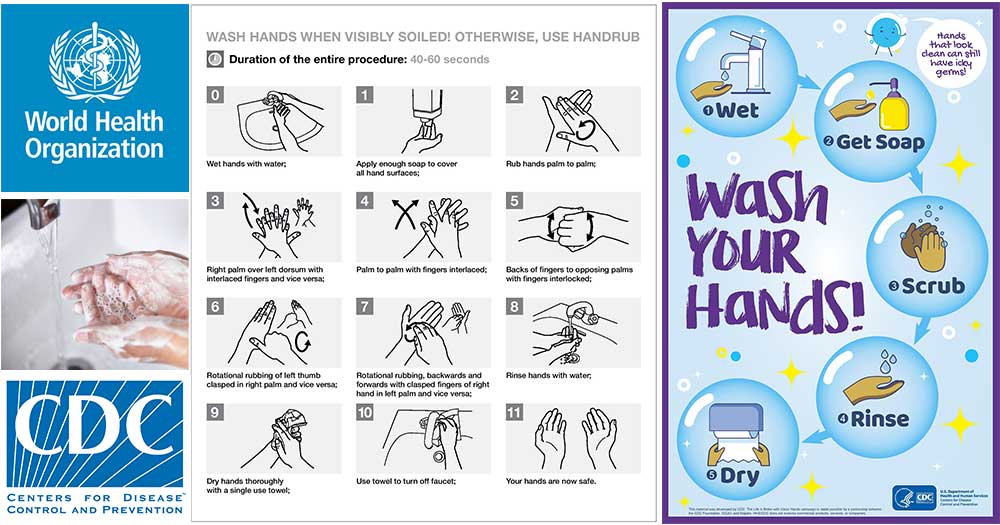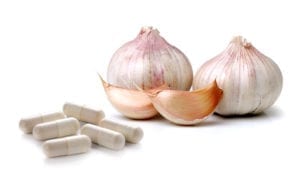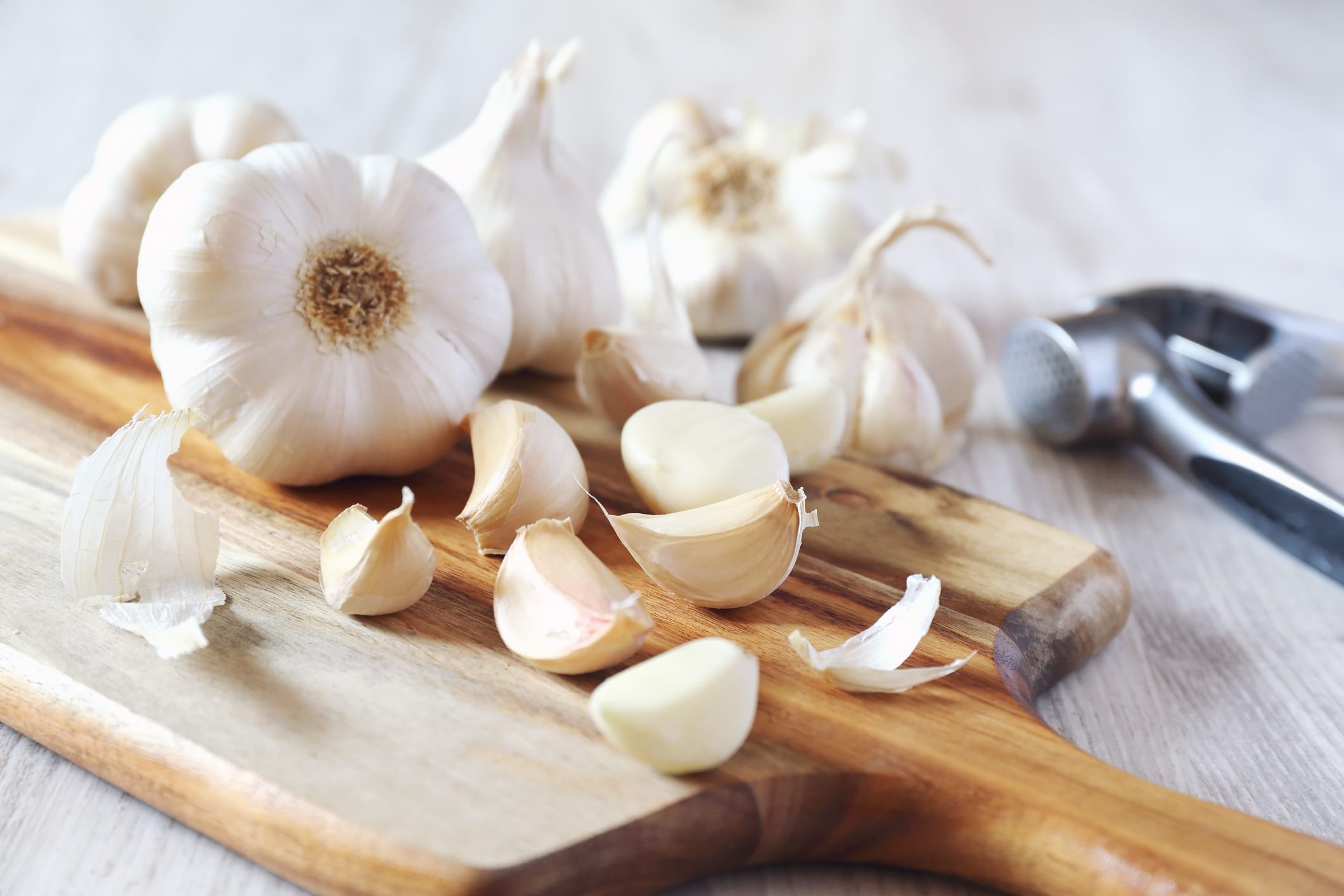Your immune system is one of the primary interfaces between your body’s inner-workings and the outside world. Fortunately, it’s a very smart system. When your immune system senses danger, it ramps up to protect against foreign invaders.
Although this typically works well, sometimes a glitch occurs and your immune system stays in a chronic state of alarm that can lead to inflammation. This can contribute to an autoimmune condition or several metabolic conditions like heart disease and diabetes. Your immune system can also become suppressed, which is a big problem because it can prevent your body from fighting off infection.
How can you tell if you have a weakened immune system? Look for the internal warning signs listed below. If any of these symptoms sound familiar, take comfort—there are simple ways to correct them, including adopting healthier habits and adding a clinically researched immune-protective nutrient to your daily routine.
Why do I keep getting sick?
On average, according to the Center for Disease Control and Prevention, adults typically get about two to three colds per year.
Things like stress and poor sleep can increase your risk of getting sick. Taking part in stress reduction techniques, sleeping 7-8 hours per night, limiting smoking, and practicing good hygiene can all help you stay in good health.
Speaking of stress reduction techniques, did you know that stress can cause a weakened immune system? Stress can weaken the immune system’s ability to fight infection by decreasing the number of immune cells and blunting the immune system’s response to infection. Consider practicing stress-reducing practices like yoga, meditation, or mindfulness techniques to help cope with stress.
Lack of sleep can also take a toll on your immune system, and increase your susceptibility to getting sick. If you’re not getting the recommended seven to eight hours of sleep each night, you might be increasing your odds of getting sick. Studies show that people who don’t get quality sleep or enough sleep are more likely to get sick after being exposed to a virus. Lack of sleep can also affect how fast you recover if you do get sick. During sleep, your immune system releases proteins called cytokines, some of which also help promote sleep. When you have an infection or inflammation, or when you’re under stress, your body needs to increase these cytokines to boost your immune system. Sleep deprivation may decrease the production of these protective cytokines.
Another reason you may find yourself catching colds and getting sick frequently is if you are a smoker. The chemicals found in cigarette smoke have been found to alter the immune system’s natural response by weakening it.
Are you a frequent hand-washer? If not, you should consider becoming one. When you do not stick to strong hygiene practices like proper hand washing, you are creating an environment that sets the stage up for recurrent infections like a cold. That’s because viral particles caused by the common cold may spread easily, especially when you ignore proper handwashing protocol.

The Warning Signs of a Weakened Immune System
 Stress. It’s not a coincidence that you’re more likely to get sick after completing a big project at work, taking an important exam, or dealing with any number of stressful situations. It’s been shown that long-term stress can weaken your immune response.1 Stress deactivates the body’s lymphocytes—the white blood cells that fight off infection. The lower your lymphocyte level, the more you’re at risk for viruses that cause colds and the flu. But you can boost your lymphocyte count by incorporating a daily habit that requires mindfulness, like meditation. These practices can go a long way in helping to reduce the everyday stress in your life.
Stress. It’s not a coincidence that you’re more likely to get sick after completing a big project at work, taking an important exam, or dealing with any number of stressful situations. It’s been shown that long-term stress can weaken your immune response.1 Stress deactivates the body’s lymphocytes—the white blood cells that fight off infection. The lower your lymphocyte level, the more you’re at risk for viruses that cause colds and the flu. But you can boost your lymphocyte count by incorporating a daily habit that requires mindfulness, like meditation. These practices can go a long way in helping to reduce the everyday stress in your life.
Digestive issues. If you have frequent gas, diarrhea, or constipation, it could be a sign that your immune system is compromised. Research shows that almost 70 percent of your immune system is located in your gut. The good bacteria that live there defend your gut from infection and help to support a robust immune response. If you are running low on good bacteria, it can make you more susceptible to getting sick.2 One way you can support your microbiome—and thus your immune health—is by taking a high-quality daily probiotic.
Frequent colds. It’s normal for people to get a few colds each year. Fortunately, most people bounce back from these colds after about a week or so. But if you’re catching colds on a regular basis, or notice that your colds take forever to go away, it could be a sign that your immune system is struggling to keep up. If you are getting persistent infections, head to your doctor to make sure it isn’t something more serious.
You feel tired (all the time). If you’re getting enough sleep yet you still suffer from exhaustion, your immune system may be trying to tell you something. However, if you don’t have good sleep habits or you routinely get fewer than seven hours of sleep per night, you’re missing out on some pretty big benefits. Aim to get seven to nine hours of sleep each night to keep your immune system in check.
Weakened Immunity? This Key Nutrient Can Help!
Zinc, vitamin C, echinacea—are likely some of the first nutrients that come to mind when you think about supporting a weakened immune system. But have you heard about Aged Garlic Extract (AGE)?

Garlic is one of the oldest cultivated plants on the planet and has been used by various cultures for thousands of years. It was worshipped by the ancient Egyptians, for example, and thought to ward off evil spirits and increase strength. Traditionally, garlic bulbs were prepared in a variety of ways for medicinal purposes. The juice of the bulb was extracted and taken internally, while the bulb was ground into a paste for external treatment. However, as a growing number of studies show, there’s significantly more to garlic’s health benefits–and aging is the key. Aging the garlic increases the garlic’s antioxidant potential, and converts harsh and unstable organosulfur compounds into the odorless, non-irritating, and bioavailable compounds which are responsible for AGE’s numerous health benefits.
A study conducted by the University of Florida found that high-potency AGE can reduce the duration of the common cold or bout with the flu by as much as 61 percent.3 During this clinical trial, researchers gave 120 healthy adults a daily dose of either 2,500 mg of Kyolic AGE or a placebo. After 90 days, blood samples from each volunteer were analyzed. Compared to the placebo group, those taking the AGE supplement had a significant increase in the number of immune cells. What’s more, the supplement appeared to enhance the function of two specific types of immune cells: NK (natural killer) cells and gamma delta T cells. Click here to read more about the additional benefits of AGE beyond just cardiovascular health, such as immune health too.
One reason for this uptick in immune function, according to the authors of the study, is the glutathione-boosting ability of the sulfur-containing compounds naturally present in AGE. Other research suggests that glutathione enhances the immune response by optimizing macrophage function while protecting disease-fighting lymphocytes from oxidative damage and premature cell death.4,5
Your immune system is the key to good health so the more you can do to protect it, the better. It’s important to listen to your body to see if any of the warning signs above ring any bells. If they do, try to adopt some healthier habits and incorporate AGE into your daily routine for some additional immune support.
How can I boost my immune system?
 When it comes to your immune system, even if you don’t have a weakened immune system, there is always something you could be doing to strengthen your defenses. We can “tune up” our immune system by modifying some of our day-to-day activities, such as incorporating more regular exercise, practicing healthier eating habits, and even incorporating a new supplement.
When it comes to your immune system, even if you don’t have a weakened immune system, there is always something you could be doing to strengthen your defenses. We can “tune up” our immune system by modifying some of our day-to-day activities, such as incorporating more regular exercise, practicing healthier eating habits, and even incorporating a new supplement.
Benefits of exercise
Most people are familiar with the public health recommendations for physical activity to improve our health, which is that adults should do at least 150 minutes per week of moderate-intensity physical activity. Physical activity is associated with a reduced rate of heart complications, stroke, diabetes, and dementia. It also gives us endorphins and helps us achieve and maintain our weight. Exercise is also thought to improve our immunity, as well. Some studies show that moderate physical activity may help to flush bacteria out of the lungs and airways. This may in turn reduce the chances of getting a cold or flu. Exercise can also cause changes in antibodies and white blood cells. For reference, white blood cells are the body’s immune system cells that fight disease. These antibodies or white blood cells circulate more rapidly after we exercise, which enables them to detect illnesses earlier than they may have before.2 Also, the brief rise in body temperature during and after working out may even prevent bacteria from growing. This temperature rise may help the body fight infection better. Lastly, exercise slows down the release of stress hormones, and lower stress hormones may protect you from getting sick. So, step #1 is to get in your weekly exercise! This could be as simple as taking a 20-minute walk, playing golf, or bicycling a few times a week. Get out there and get active!
Eating Right
Maintaining a healthy diet helps keep the immune system balanced and ready to fight against infections and viruses. Since your immune system requires a healthy balance of real foods, these nutrients should be a top priority for your everyday eating pattern.
Protein: Protein is the building block of immune cells. A diet lacking in protein can seriously put a damper on your immune function. Most adults need at least 50 grams of quality protein per day (or a palm-sized portion per meal). It may help to make a weekly meal plan so that it’s easier to incorporate healthy protein. This could be doing eggs for breakfast, turkey chili for lunch, and salmon for dinner. Also, throw in a handful of pumpkin seeds, they are packed with protein!
Antioxidants: Fill your plate with some colorful foods! A general rule of thumb is that the more colorful the foods on your plate, the healthier they are (unless it’s a bag of M&M’s, of course). Deep, rich colors indicate micronutrients and antioxidants, which your body needs for protection and for recovery from illness3. Studies have shown that antioxidants improve immune responses, so be sure to throw some bell peppers, purple cabbage, and green beans on your plate.
Supplements for success
In addition to these immune-boosting tips, we also encourage you to take a look in your medicine cabinet (or kitchen pantry). Odds are, there are a few different types of vitamins and supplements in there that can help boost your immunity. You can combine several different types of supplements, in order to really fortify and build that immune system. Your vitamin C supplement, combined with a daily probiotic, and even a nutritious powdered green drink, can pack quite the punch to any would-be illnesses, and stop them in their tracks. Green drinks, for example, can help increase your consumption of leafy greens, as well as other alkalizing superfoods like chlorella and spirulina. They also improve hydration and deliver essential vitamins, minerals, and antioxidants. When used on a regular basis, these green drinks can support digestion and immunity while enhancing the body’s natural detoxification capabilities. It is one of the easiest, most convenient ways to support good health every day. We also mentioned that a probiotic can fortify and support immune system. Did you know that seventy percent of your immune system lives in the gut? So it’s no surprise that the gut plays an important role in protecting against harmful bacteria and viruses. Just as your skin protects you against foreign invaders on the outside, your gut lining protects you from these pathogens on the inside. A daily probiotic is a great way to inject a bit more bacteria in your diet and help keep your microbiome in “fighting shape.”
References
- Stress weakens the immune system. American Psychological Association. 2006; https://www.apa.org/research/action/immune
- Wu H & Wu E. The role of gut microbiota in immune homeostasis and autoimmunity. Gut Microbes. 2012; 3(1): 4-14.
- Percival SS. Aged garlic extract modified human immunity. Journal of Nutrition. 2016;146(2):433S-436S.
- Yan J, Ralston MM, Meng X, et al. Glutathione reductase is essential for host defense against bacterial infection. Free Radical Biology & Medicine. 2013;61:320-332.
- Kwon DH, Lee H, Park C, et al. Glutathione induced immune-stimulatory activity by promoting M1-like macrophages polarization via potential ROS scavenging capacity. Antioxidants (Basel). 2019;8(9):413.
- https://health.usnews.com/health-care/for-better/articles/2017-07-28/how-to-train-and-maintain-your-immune-system
- https://medlineplus.gov/ency/article/007165.htm
- https://www.oregonclinic.com/about-us/blog/how-healthy-eating-patterns-shape-your-immune-system
This article is for informational purposes only. This article is not, nor is it intended to be, a substitute for professional medical advice, diagnosis, or treatment and should never be relied upon for specific medical advice.

Share this Post